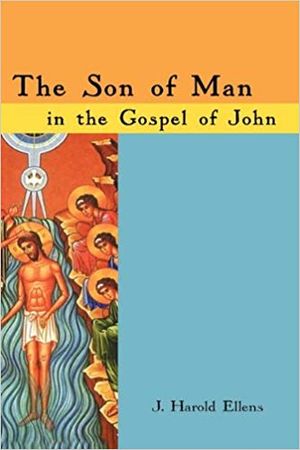Difference between revisions of "The Son of Man in the Gospel of John (2010 Ellens), book"
Saul Hankin (talk | contribs) |
|||
| (12 intermediate revisions by 2 users not shown) | |||
| Line 1: | Line 1: | ||
[[File:2010 Ellens.jpg|thumb|300px]] | |||
'''The Son of Man in the Gospel of John''' (2010) is a book by [[J. Harold Ellens]]. | '''The Son of Man in the Gospel of John''' (2010) is a book by [[J. Harold Ellens]]. | ||
==Abstract== | ==Abstract== | ||
"J. Harold Ellens here explores the intriguing question of why, in John’s Gospel, Jesus called himself the ‘Son of Man’, virtually the only title he gave himself in the Fourth Gospel, and a title virtually no one else ever used for him. In Second Temple Judaism there were several traditions about the Son of Man. In Ezekiel the term ‘son of man’ means ‘mere mortal’. In Daniel, on the other hand, the Son of Man is a heavenly figure with authority to destroy evil and establish God’s reign on earth. In 1 Enoch, the Son of Man is a human being appointed by God as an eschatological judge. In Matthew, Mark, and Luke the Son of Man is a man who builds the kingdom of God on earth. Jesus also depicts himself as the Suffering Servant, who will die at the hands of the Jerusalem authorities and be exalted by God to heavenly status as the final Judge. In this monograph the focus is on the Son of Man in the Gospel of John. There is nothing of the Ezekiel tradition in John, but Daniel’s heavenly Son of Man is evident in the mind of this Gospel’s author, who envisages him as divine, of heavenly origin. Indeed, in John the Son of Man is the divine Logos, God’s revelation of himself. As against the Enochic and Synoptic Son of Man, the Johannine Son of Man is not a human being who is exalted to heaven and who will come again as the final Judge. He is a divine figure who descends to earth to remove evil now, by forgiving sins and by establishing God’s universal reign."--Publisher description. | |||
==Editions == | |||
Published in [[Sheffield, England]]: [[Phoenix]], 2010. | |||
==Table of Contents== | ==Table of Contents== | ||
== | ==Online reviews== | ||
*[http://www.enochseminar.org//drupal/node/6907 Enoch Seminar Online (2012)] | |||
[[Category:2010| Ellens]] | |||
[[Category:English language--2010s|2010 Ellens]] | |||
[[Category:Gospels Studies--2010s|2010 Ellens]] | |||
[[Category:Gospels Studies--English|2010 Ellens]] | |||
[[Category:Johannine Studies--2010s|2010 Ellens]] | |||
[[Category:Johannine Studies--English|2010 Ellens]] | |||
[[Category:Son of Man (subject)|2010 Ellens]] | [[Category:Son of Man (subject)|2010 Ellens]] | ||
[[Category:Gospel of John (text)|2010 Ellens]] | [[Category:Gospel of John (text)|2010 Ellens]] | ||
Latest revision as of 23:08, 28 January 2021
The Son of Man in the Gospel of John (2010) is a book by J. Harold Ellens.
Abstract
"J. Harold Ellens here explores the intriguing question of why, in John’s Gospel, Jesus called himself the ‘Son of Man’, virtually the only title he gave himself in the Fourth Gospel, and a title virtually no one else ever used for him. In Second Temple Judaism there were several traditions about the Son of Man. In Ezekiel the term ‘son of man’ means ‘mere mortal’. In Daniel, on the other hand, the Son of Man is a heavenly figure with authority to destroy evil and establish God’s reign on earth. In 1 Enoch, the Son of Man is a human being appointed by God as an eschatological judge. In Matthew, Mark, and Luke the Son of Man is a man who builds the kingdom of God on earth. Jesus also depicts himself as the Suffering Servant, who will die at the hands of the Jerusalem authorities and be exalted by God to heavenly status as the final Judge. In this monograph the focus is on the Son of Man in the Gospel of John. There is nothing of the Ezekiel tradition in John, but Daniel’s heavenly Son of Man is evident in the mind of this Gospel’s author, who envisages him as divine, of heavenly origin. Indeed, in John the Son of Man is the divine Logos, God’s revelation of himself. As against the Enochic and Synoptic Son of Man, the Johannine Son of Man is not a human being who is exalted to heaven and who will come again as the final Judge. He is a divine figure who descends to earth to remove evil now, by forgiving sins and by establishing God’s universal reign."--Publisher description.
Editions
Published in Sheffield, England: Phoenix, 2010.
